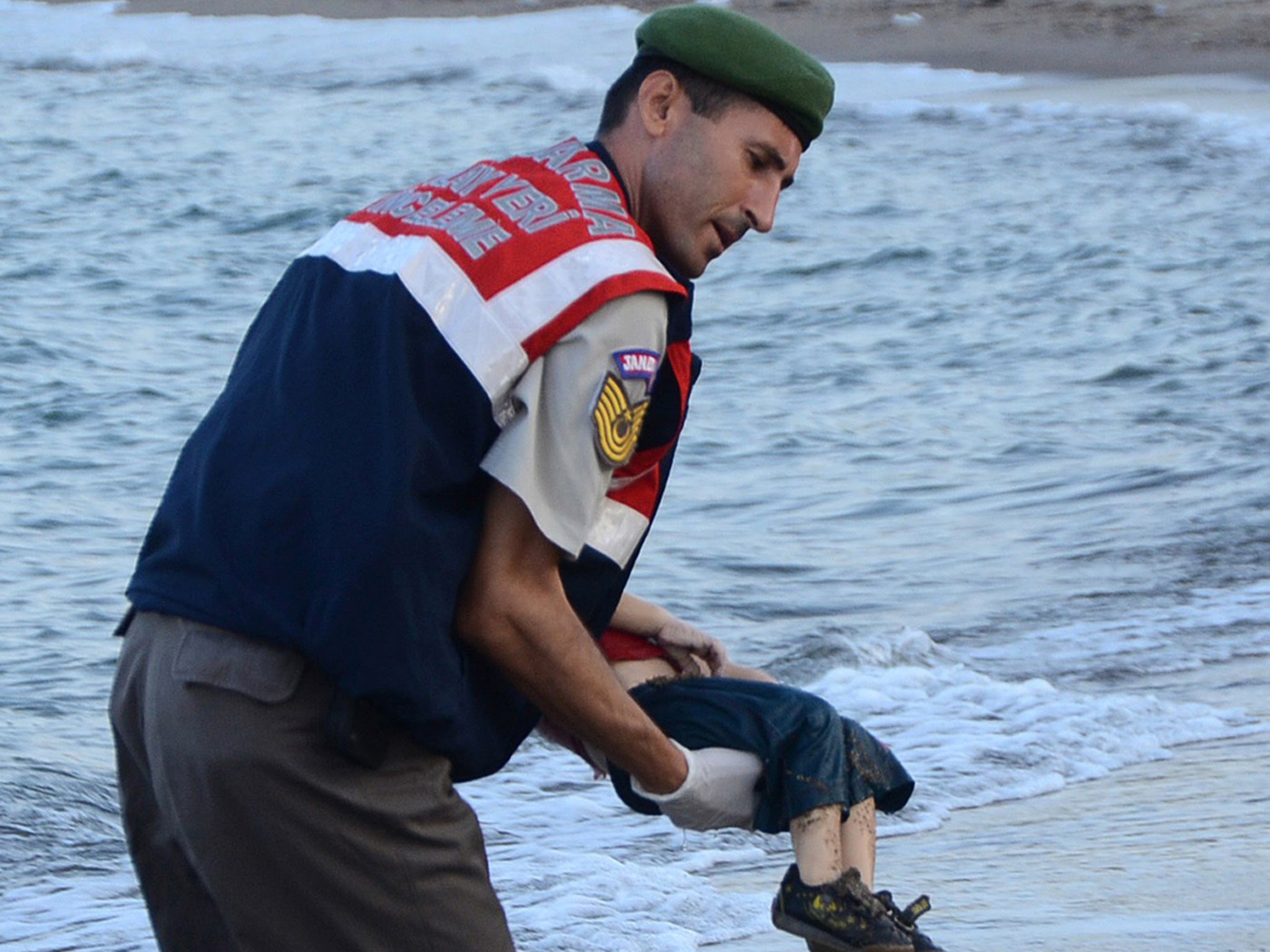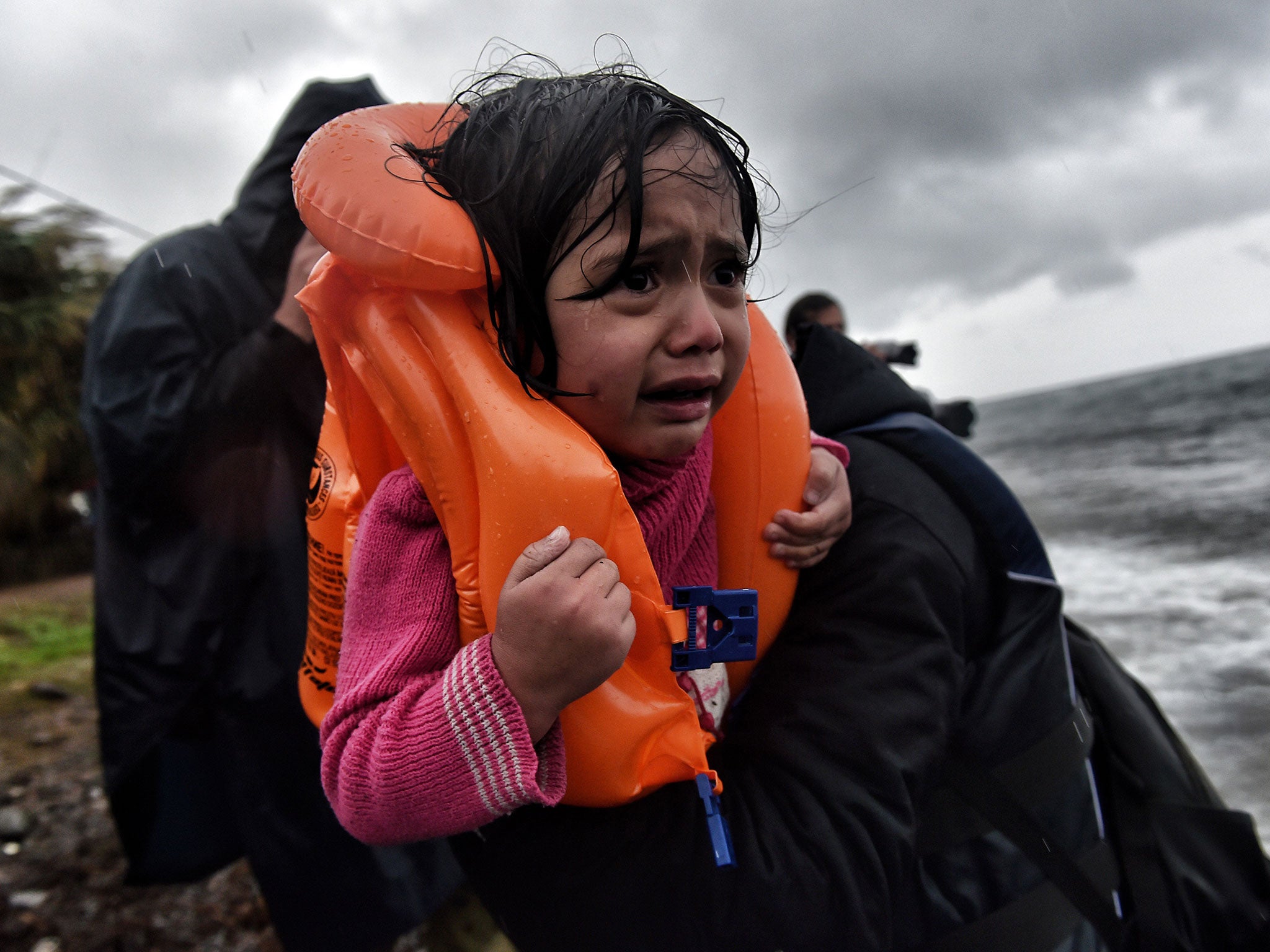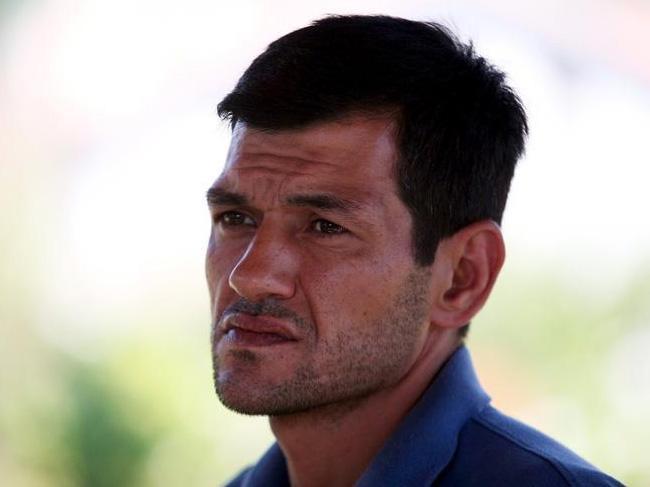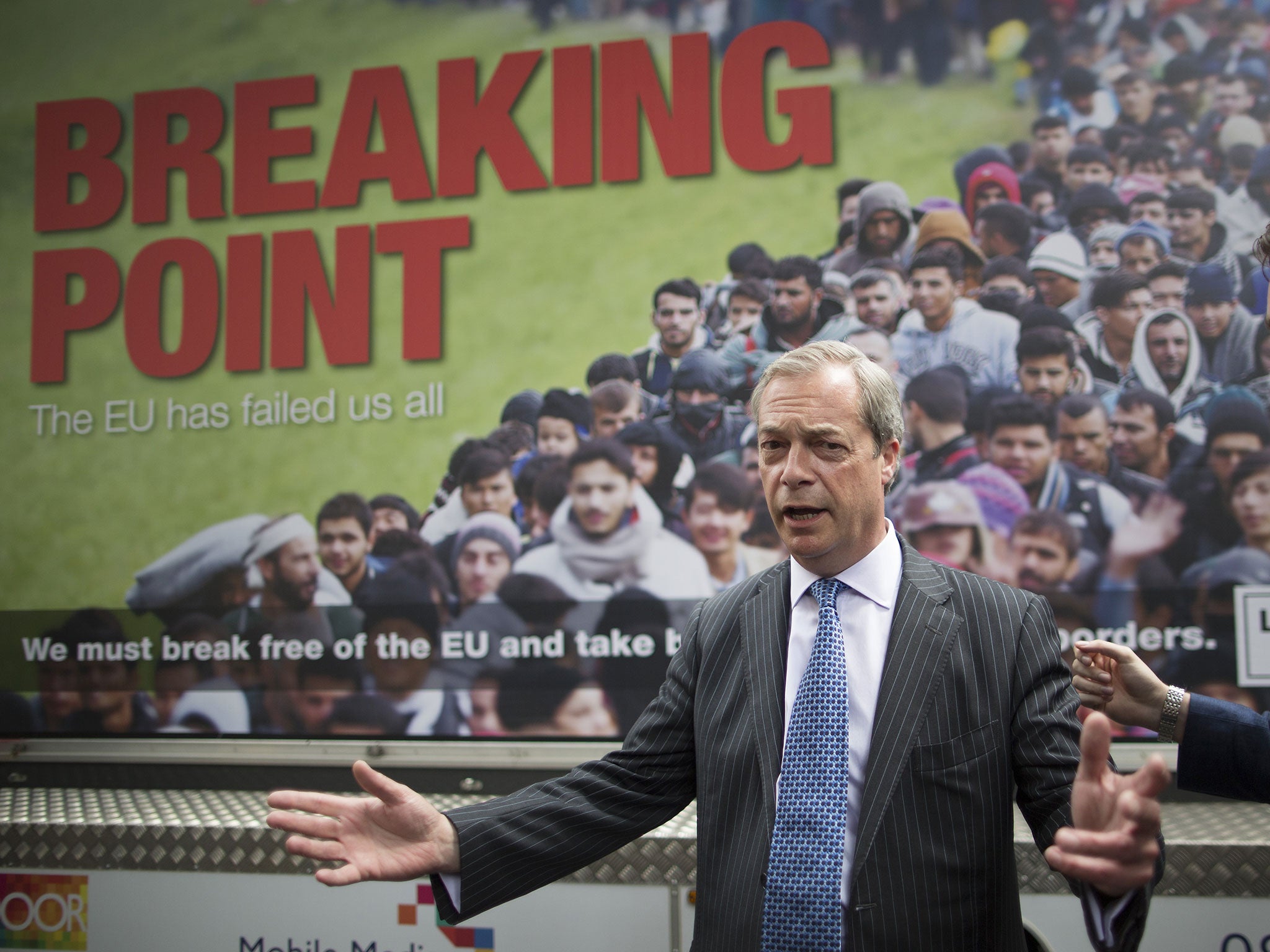12 months ago, Alan Kurdi’s lifeless body shocked the world. Britain promised to act. What went wrong?
Politicians and even Alan Kurdi’s father have condemned the inaction that followed the initial outpouring of grief

Your support helps us to tell the story
From reproductive rights to climate change to Big Tech, The Independent is on the ground when the story is developing. Whether it's investigating the financials of Elon Musk's pro-Trump PAC or producing our latest documentary, 'The A Word', which shines a light on the American women fighting for reproductive rights, we know how important it is to parse out the facts from the messaging.
At such a critical moment in US history, we need reporters on the ground. Your donation allows us to keep sending journalists to speak to both sides of the story.
The Independent is trusted by Americans across the entire political spectrum. And unlike many other quality news outlets, we choose not to lock Americans out of our reporting and analysis with paywalls. We believe quality journalism should be available to everyone, paid for by those who can afford it.
Your support makes all the difference.The sight of that little boy – in his little blue shorts and plimsolls, face down on a Turkish shore – appeared to herald a sea change, but it was all too brief.
In the picture of Alan Kurdi, people saw in him their own son. Their own little brother.
All the incandescent storms that rage around immigrants and asylum seekers, refugees and terrorists, job thieves and benefit scroungers and crumbling infrastructure and pressure on local services and all the never-ending rest of it, were suddenly calmed by a single photograph.
Within days, promises were made.
When The Independent launched its petition a year ago urging the Government to take in more refugees, nearly 400,000 people added their signatures within a matter of days. In response, the Government agreed to increase the number to whom it would offer asylum – to 20,000 over five years.
Later, the policy was again changed to resettle unaccompanied children in the UK.
The “sea change” lasted barely months. In January, Jeremy Corbyn went to the migrant camp in Calais and met some of these children, a course of action for which he would be mocked at the despatch box by David Cameron. “He met with a bunch of migrants in Calais,” the Prime Minister brayed. “He said they could all come to Britain!”
A bunch of migrants. It’s only four words long; just a turn of phrase, albeit a cruel one. So what? But it pointed the way back. Of course, since then, seismic events have shaken the public psyche. Tolerance is down. Phoney patriotism is up, and hate crime with it.

But even the promises that were made in those rarefied moments, and more since, have not been kept. Since Alan Kurdi’s death, the UK has taken in 2,800 Syrian refugees, significantly down on the 4,000 a year that were promised, which is itself a pitifully low figure. 7,000 refugees alone were rescued in Italy just a couple of nights ago.
Not a single unaccompanied child refugee has yet been brought in to the UK, despite legislation passed to that affect via the “Dubs amendment”, introduced by Lord Alfred Dubs, the Czech Jewish Second World War evacuee.
Since then, there has been a change of government that has remained entirely silent on the issue.
“Across Europe, children are being failed by governments,” the former shadow Foreign Secretary Yvette Cooper told The Independent.
“If you look at what’s happening in Britain, there was huge support for the Dubs amendment, across political parties, across the media, but the Government hasn’t acted.
“They’ve made very slow progress compared to Canada, compared to America. This complete lack of progress on child refugees is troubling.
As we think back on Alan Kurdi, and that picture that changed peoples minds and attitudes, what we should be trying to do now is to change things, to change children’s lives
“There has been a change of government, but I think Theresa May was responsible for a lot of it flagging in the Home Office. I see no sign of energy from Number 10 on this at all. I hope that Amber Rudd will take it more seriously.
“There is so little being done. There are no proper systems in place to help children who are alone.
“Children are still stuck in incredibly dangerous conditions, facing incredibly long delays. As we think back on Alan Kurdi, and that picture that changed peoples minds and attitudes, what we should be trying to do now is to change things, to change children’s lives.”
And it is a lack of action – not just by the UK, but across Europe – that has been condemned by the father of Alan Kurdi.
“The politicians said after the deaths in my family: ‘Never again’,” Abdullah Kurdi said. “Everyone claimed they wanted to do something because of the photo that touched them so much. But what is happening now? People are still dying and nobody is doing anything about it.”

In Britain, it’s not just the numbers that have disappointed. What appears to have changed more profoundly than could have been foreseen is people’s attitudes. There is no question more tempestuous – particularly for an island nation – than who should and shouldn’t be allowed to set foot up on its land. Its currents are primeval. Its winds are cruel. But that the separate issues of immigration and asylum – of economic ambition and simple desperation – should be so confused is a consequence of the most cynical political calculation.
When the Kalashnikovs went off in the Bataclan, refugees were no longer merely cockroaches but terrorists.
When Nigel Farage claimed to want to regain controls on immigration, he stood in front of a picture of a long line of refugees queuing at the border between Croatia and Slovenia. Breaking Point. (Five hours later, an MP who had dedicated her life to helping refugees had been assassinated in the street by a man who would give his name in court as, “Death to traitors. Freedom for Britain.”)

But two people who are reassuringly optimistic are two Syrian brothers called Anas and Eid Al Darkazanly. Last September, they arrived in Dover in the back of a lorry. Anas’s wife is missing in Syria. There is a “99 per cent chance” she is no longer alive. Both men’s children are in Lebanon, where last year Anas was detained by authorities who handcuffed his hands behind his back with such force that it broke his right hand. Currently, there is little chance of being reunited with them. They have hidden in Hungarian forests. They have seen a close friend killed at Calais by the Eurotunnel train. Now they are in a small west London flat, reunited with their half brother, Emad, who has lived in London for more than ten years.
“We haven’t done anything wrong,” Anas told The Independent. “We just seek safety. I left the country because of problems. What refugees seek is safety, and a proper life. They haven’t done anything wrong.”
A year ago, when Alan Kurdi’s image flew around the world, the two brothers were in the middle of the journey to the UK. They have been granted asylum, and given leave to remain for five years.
“Once Alan had been in the newspapers everywhere, people changed their attitudes,” Eid said. “The media put pressure on governments and they changed their attitudes. But then things happened in Paris, and in Germany and across Europe, and attitudes have changed again now, to be against refugees. But the people have not changed. Their situation has not changed. Alan was one little boy. Thousands have died. The situation for these people is the same. They needed help one year ago, five years ago. They need help now.”
That the country they have fled to is now experiencing instability of its own made Anas laugh. “I think it must be our fault. Everywhere we go, this is happening.” But the brothers are worried about what might happen over the next five years, and the rising difficulties they will face to bring their children to the UK.

“Being in the UK, is like the difference between the sky and the earth. We feel very welcome. And the police do not hit us,” said Anas. “But we don’t know what will happen in five years. When our five years run out, will the Government be sympathetic to us? Where will we go? There is nowhere to go. There is no Syria. There will not be Syria. I have applied for reunion with my children and my mother and it was refused.”
The brothers know well their stories are only one of hundreds of thousands. And in the year since Alan Kurdi’s death, there are more than 5,000 stories that have ended in the same unforgivable fate. Since the refugee crisis began in earnest in the summer of 2014, 539 children are confirmed to have drowned in the Mediterranean. The real number is much higher. And it will get higher still.
In the months ahead, the country will surely come down from its summer of high rhetoric and wild hate. But even before then, it must come good on its promise.
“Only this week we've seen the devastating consequences of the refugee crisis on Europe's shores. Thousands of people continue to attempt to cross the Mediterranean and, tragically, many never make it across alive,” Green MP Caroline Lucas told The Independent.
“The Government must play its part in honouring Britain's reputation as a country where those fleeing danger can take refuge. For a start that must mean increasing the number of refugees being given the chance to settle here – indeed there would be no braver act by Theresa May in her first weeks as PM than changing Britain's stance on this issue and ensuring we take our fair share.”
It’s not as if we don’t know the alternative well enough. Somebody else’s little boy or girl, somebody else’s little brother or sister, face down on the beach at dawn.
Join our commenting forum
Join thought-provoking conversations, follow other Independent readers and see their replies
Comments